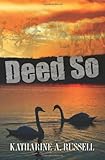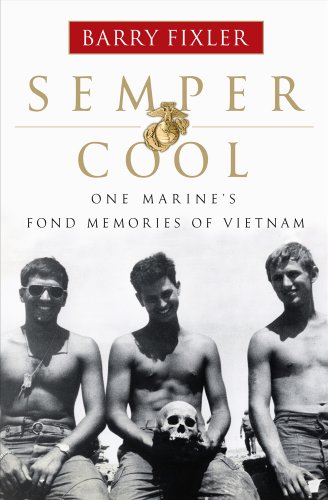…but I haven’t been posting any reviews lately. I’ve needed a break from it.
I’ve been blogging about general stuff over at MelissaBartell.com.
I plan to resume regular posting here on Monday, April 4th.
Be well.

…but I haven’t been posting any reviews lately. I’ve needed a break from it.
I’ve been blogging about general stuff over at MelissaBartell.com.
I plan to resume regular posting here on Monday, April 4th.
Be well.

Deed So
Katherine Russell
CreateSpace, 438 pages
November 2010
Buy this book from Amazon or Read the first chapter for free
Product Description (from Amazon.com):
It is 1962, and Agnes Hayden Bashford, Haddie, a brainy Southern teen from a tradition-bound family, dreams of breaking free from suffocating expectations placed on girls and from Wicomico Corners. She vows to escape to the exhilarating world beyond its narrow borders, like her handsome, older friend Gideon Albright who is going to Vietnam. A series of shocking incidents brings the outside world crashing down on her peaceful village, exposing long-buried family secrets and setting Haddie on a collision course with an unstable firebrand who will have to silence her to protect his identity. Haddie witnesses the fatal shooting of a black teen by a white down-on-his-luck farmer trying to protect his retarded son. The resulting murder trial attracts outside agitators and political aspirants, and pits townspeople against each other. Excited about being a witness in the trial, Haddie sees her moment of notoriety dissolve into frustration and discomfort and tragedy claim the people around her. The racially-charged case exposes civic fault lines and secrets within Haddie’s own family, shattering her comfortable home life, and unleashes an arsonist who terrorizes the community by night. In Deed So, a young girl and an entire town lose their innocence in the last year of innocence, the year before the Kennedy assassination, the civil rights struggle, feminist activism and the Vietnam War changed America forever.
Haddie, the main character in Katherine Russell’s novel Deed So is the same age as my mother. That thought kept running through my head as I was reading her story, and mentally juxtaposing it with the stories my mother had told me about growing up in New Jersey in the same year. Haddie had a friend who was a soldier in Viet Nam – my mother’s only brother chose to go to Canada instead… Haddie was a witness to ethnic persecution – my mother, on a field trip to Washington D.C., saw Dr. King holding one of his first vigils, sitting alone and silently at the Lincoln Memorial. Separating my mother’s real story from Haddie’s fictional one proved difficult for me as I was reading this book.
And it’s a wonderful book, albeit one about some very un-wonderful events. Russell’s characters are vivid and completely three-dimensional, and the opening, in a Southern church supper makes you almost smell the ham, and hear the clinking of silverware against china. Her parents are portrayed not as Evil Adults, but as very human people who love their daughter and try to ride the line between encouraging her precocious intelligence and protecting her relative innocence.
I also enjoyed reading about Haddie’s friendships with the other girls her age – the sneaking of cigarettes and looking at the pictures in Grey’s Anatomy made me laugh – it’s such a universal experience for young girls in the pre-Internet age.
When the book turns darker, first because of a fight that Haddie witnesses, and which results in a court case, and later because of a series of fires that may or may not be related to the trial (I’m not telling!), Russell doesn’t flinch. Her characters represent the broad spectrum of public opinion about the rights and roles of African Americans during the civil rights movement, and while many of those opinions are decidedly unPC by modern standards, they are true to the period, and to the region.
The mark of a good writer, a good storyteller, is to take a difficult subject and present it in a fashion that is both interesting and compelling. In Deed So Russell has done exactly that.
Robert Louis Stevenson’s poems were constant friends in childhood, poems my grandmother and I would memorize and recite. I knew all about having a little shadow, and going up in a swing.
One poem that I never appreciated until this weekend, which has been spent largely in bed, was “The Land of Counterpane,” in which a sick child turned the hills and valleys of his comfortable bed into all manner of landscapes for his imagination.
I don’t imagine my quilt squares as separate countries, but I do still let imagination run wild.
Even days spent propped on pillows have magic.
Originally written 30 August 2009 in another blog.

Semper Cool
Barry Fixler
Exalt Press, 320 Pages
December, 2010
Buy from Amazon >> or Read the first chapter for free
Description (from Publishers Weekly):
From Publishers Weekly
Many Vietnam veterans look back in anger on their wartime experiences, but Fixler, who endured one of the bloodiest battles of the war, isn’t one of them. The gruesome 77 days he spent defending an isolated hilltop near the border with North Vietnam forms the core of this nostalgic memoir. Growing up in a predominately middle-class Jewish neighborhood, Fixler was dazzled by his father’s stories of WWII and volunteered for Vietnam to earn his respect. As a teen, Fixler got into his fair share of trouble and that cockiness seeps into these pages. Arrival at the Marine Corps’ Parris Island boot camp is compared to “being thrown into a Nazi concentration camp.” He celebrates his sexual escapades and never sugarcoats the nasty business of war; he’d do “everything again in heartbeat.” Yet as wistful as he is about the “discipline” and “camaraderie” of the Corps, he’s unrelenting in his scorn for the soldiers who return in psychological pieces, suggesting that soldiers should just get used to killing. Nowhere near the league of We Were Soldiers Once…and Young, Fixler is nonetheless an intriguing, rare bird: a man who survived “hell in the raw” without a trace of trauma-or remorse.
Semper Cool is an interesting book. You don’t expect to find veterans talking about Viet Nam as if it was a long, black comedy bit, and yet at times Fixler seems to do just that.
Don’t get me wrong – this book is eminently readable. Fixler’s voice is alternately self-deprecating and wise-cracking. He doesn’t shy away from visceral description, and his scene-painting is very vivid. It’s just jarring to read something where someone comes home from a tour of Viet Nam seemingly unaffected.
And maybe the fault lies with me – maybe I have come to expect jarring horror stories about this period so much that when I read a story that doesn’t dwell on the horror my brain can’t accept it.
Bottom line: If you’re reading this for an unbiased look at Viet Nam, don’t. If you’re reading it for an entertaining look at one man’s experience, and how he personally grew after an experience that broke others, you’ll be satisfied, as I was, once I stepped away from the book, and stepped back with a fresh perspective.